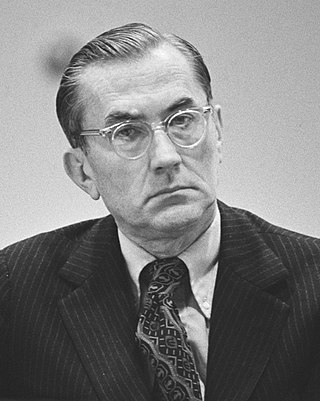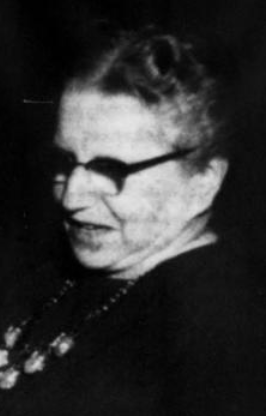Douglas C. Waller is an author, lecturer, and former correspondent for Time magazine and Newsweek . [1] [2]
Douglas C. Waller is an author, lecturer, and former correspondent for Time magazine and Newsweek . [1] [2]
Douglas Waller was born on June 30, 1949, in Norfolk, Virginia, and holds a B.A. in English from Wake Forest University, as well as an M.A. in Urban Administration from the University of North Carolina at Charlotte.
Waller describes himself as a veteran correspondent, author and lecturer. [3] From 1994 to 2007, Waller served in TIME Magazine's Washington Bureau, where he covered foreign affairs as a diplomatic correspondent. He came to TIME in 1994 from Newsweek , where he reported on major military conflicts. Waller joined Newsweek in 1988, after serving as a legislative assistant on the staffs of Senator William Proxmire and Representative Edward J. Markey.
In a review posted online on June 25, 2015, Kirkus Reviews described his book Disciples as "one of the more interesting spy books this year." [2] In the October 3–4, 2015 "Five Best" column in The Wall Street Journal Books section, Waller presented his personal choice of what he considered to be the five best works on American espionage in World War II. [4] [5]
Waller and his wife, Judy, live in Raleigh, North Carolina.
Charles McCarry was an American writer, primarily of spy fiction, and a former undercover operative for the Central Intelligence Agency.

The Office of Strategic Services (OSS) was an intelligence agency of the United States during World War II. The OSS was formed as an agency of the Joint Chiefs of Staff (JCS) to coordinate espionage activities behind enemy lines for all branches of the United States Armed Forces. Other OSS functions included the use of propaganda, subversion, and post-war planning.
A Red Scare is a form of moral panic provoked by fear of the rise, supposed or real, of leftist ideologies in a society, especially communism. Historically, "red scares" have led to mass political persecution, scapegoating, and the ousting of those in government positions who have had connections with left-wing to far-left ideology. The name is derived from the red flag, a common symbol of communism.

William Joseph "Wild Bill" Donovan was an American soldier, lawyer, intelligence officer and diplomat. He is best known for serving as the head of the Office of Strategic Services (OSS), the precursor to the Bureau of Intelligence and Research and the Central Intelligence Agency (CIA), during World War II. He is regarded as the founding father of the CIA, and a statue of him stands in the lobby of the CIA headquarters building in Langley, Virginia.

William Egan Colby was an American intelligence officer who served as Director of Central Intelligence (DCI) from September 1973 to January 1976.

Sir William Samuel Stephenson was a Canadian soldier, fighter pilot, businessman and spymaster who served as the senior representative of the British Security Coordination (BSC) for the western allies during World War II. He is best known by his wartime intelligence code name, Intrepid. Many people consider him to be one of the real-life inspirations for James Bond. Ian Fleming himself once wrote, "James Bond is a highly romanticised version of a true spy. The real thing is... William Stephenson."
Oleg Danilovich Kalugin is a former KGB general. He was during a time, head of KGB political operations in the United States and later a critic of the agency. After being convicted of spying for the West in absentia during a trial in Moscow, he remained in the US and was sworn in as a citizen on 4 August 2003.

Bat bombs were an experimental World War II weapon developed by the United States. The bomb consisted of a bomb-shaped casing with over a thousand compartments, each containing a hibernating Mexican free-tailed bat with a small, timed incendiary bomb attached. Dropped from a bomber at dawn, the casings would deploy a parachute in mid-flight and open to release the bats, which would then disperse and roost in eaves and attics in a 20–40-mile radius (32–64 km). The incendiaries, which were set on timers, would then ignite and start fires in inaccessible places in the largely wood and paper constructions of the Japanese cities that were the weapon's intended target. The United States Navy took control in August 1943, using the code name Project X-Ray.
Erna Flegel was a German nurse. In late April 1945 she worked at the emergency casualty station at the Reich Chancellery in Berlin, and was one of the final occupants of the Führerbunker before she was captured by the Red Army on 2 May 1945.

Cornelius Vander Starr, sometimes known as Neil Starr, was an American businessman and founder of C.V. Starr & Co. in Shanghai, China, which became insurance giant AIG.
Donovan, Leisure, Newton & Irvine was an American white-shoe law firm, located in New York. It was founded in 1929 by General William "Wild Bill" Donovan, who was often referenced as the Father of the CIA. The firm dissolved in 1998. Its notable antitrust cases include a series of lawsuits involving American Cyanamid in the 1960s and Kodak. The firm closed its doors after "[a]bout 40 of the firm's 60 lawyers were hired. .. by Orrick, Herrington & Sutcliffe, a large California law firm that [was] expanding aggressively in Manhattan."
Anthony Cave Brown was a British journalist, espionage non-fiction writer, and historian.
The Pond was a small, secret organization formed by the government of the United States which operated between 1942 and 1955. It engaged in espionage. It was formally acknowledged by the US government in 2001.
Jennet Conant is an American non-fiction author and journalist. She has written five books about World War II, three of which have appeared on the New York Times Best Seller list: Tuxedo Park: A Wall Street Tycoon and the Secret Palace of Science that Changed the Course of WWII, 109 East Palace: Robert Oppenheimer and the Secret City of Los Alamos, The Irregulars: Roald Dahl and the British Spy Ring in Wartime Washington, and A Covert Affair: Julia Child and Paul Child in the OSS.
Mark Riebling is an American author. He has written two books: Wedge: The Secret War between the FBI and CIA and Church of Spies: The Pope's Secret War Against Hitler.

Wedge: The Secret War Between the FBI and CIA, a nonfiction book by American historian and policy analyst Mark Riebling, explores the conflict between U.S. domestic law enforcement and foreign intelligence. The book presents FBI–CIA rivalry through the prism of national traumas—including the Kennedy assassination, Watergate, and 9/11—and argues that the agencies' failure to cooperate has seriously endangered U.S. national security.

Spying, as well as other intelligence assessment, has existed since ancient history. In the 1980s scholars characterized foreign intelligence as "the missing dimension" of historical scholarship." Since then a largely popular and scholarly literature has emerged. Special attention has been paid to World War II, as well as the Cold War era (1947–1989) that was a favorite for novelists and filmmakers.

Bertha "Betty" Carp was an American embassy official and intelligence agent, called "The Best Known American in Turkey".

Robert A. Solberg (Solborg) was a soldier and spy during World War I and World War II, becoming a key figure in the development of the Office of the Coordinator of Information and the Office of Strategic Services, precursor to the Central Intelligence Agency.